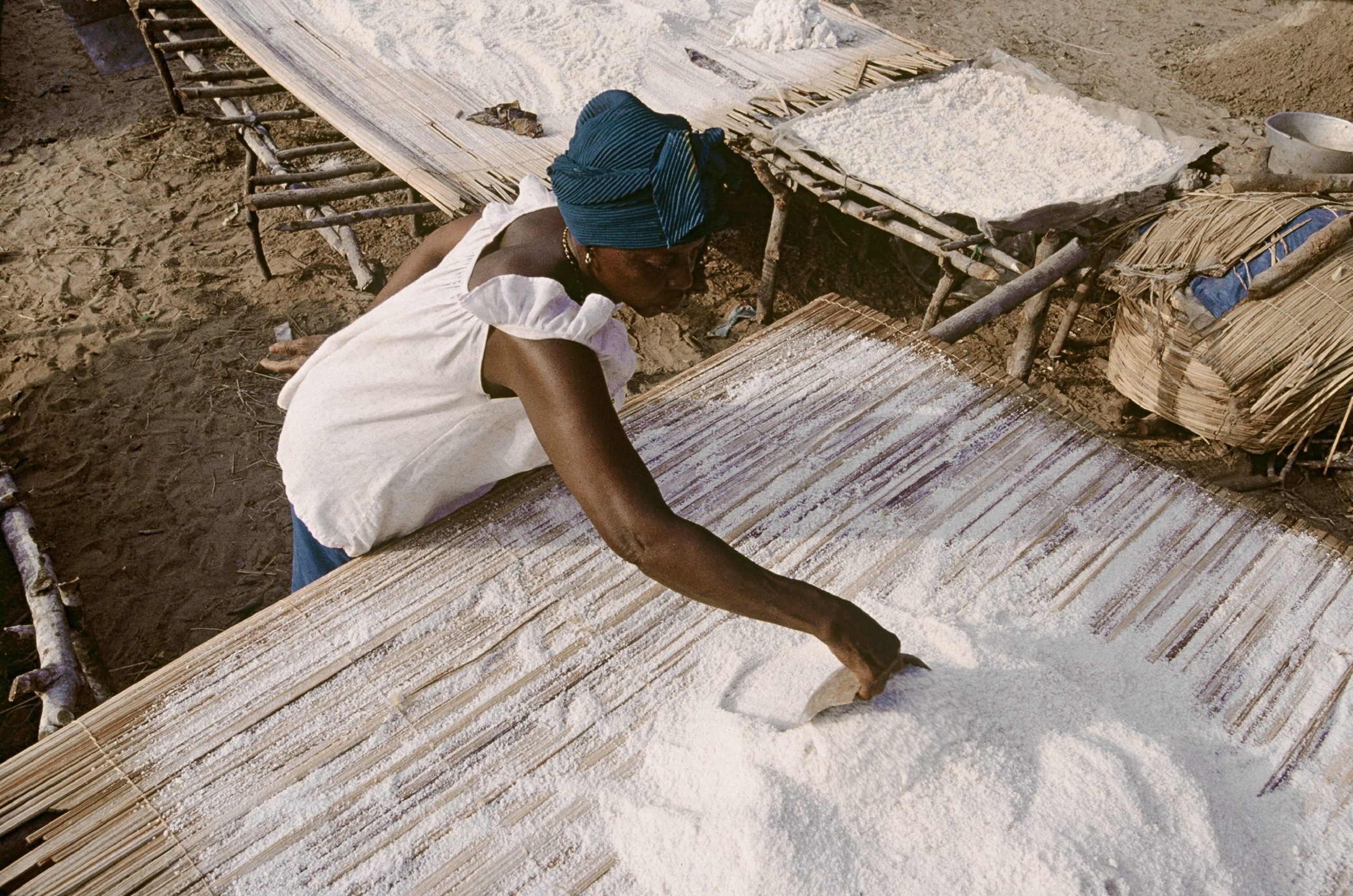
Description of the project: The DEDURAM project aims to improve the livelihoods of women and communities in the mangroves of Guinea-Bissau, through sustainable management of space, energy and natural resources. North-South knowledge exchange and capacity-building of women producers contribute to structure and develop the salt and rice value chain in the mangroves. 2000 family farms, 75% of which are managed by women, have adopted sustainable production methods (solar energy, reduced water consumption), thanks to the sharing of ancestral know-how and innovative techniques. 1500 women and 500 men have gained in autonomy through increased revenues and their integration into the local economy, while adapting to the impacts of climate change.
Climate impact: The traditional salt production technique – by heating brine – uses 3 tons of firewood for each ton of salt. By introducing the ancestral solar method used in the salt marshes of Brittany, Universsel has enabled women in Guinea to produce 4000 t. of salt while protecting 24 ha. of mangrove forests. Efficient water management in rice-growing areas has favoured the rehabilitation of abandoned rice paddies while increasing rice yield. This innovation, combined with geo-referenced monitoring, helps to preserve the biodiversity of a fragile ecosystem, and prevents further deforestation of the mangrove.
Gender impact: Salt is exclusively produced by women in Guinea-Bissau. 1500 of them have gained skills in a new solar technique, but also in sales, financial management, microcredit and the structuring into cooperatives. They enjoy better living and working conditions and greater recognition within a patriarchal society. They have become actively involved in the protection of their ecosystem as their cultural horizons have been broadened through exchange visits to France and Senegal, and they have been empowered within organized associations of women salt producers.
Scalability / replicability: DEDURAM promotes two innovative techniques which are affordable and easy to adopt by women producers in Guinea Conakry, Guinea Bissau and soon in Senegal. The beneficiaries cooperate with local professional organisations and Government agencies. In order to ensure the sustainability and scaling up of the adopted technologies, rice areas management committees and women producers associations have worked together to draw up a capacity-building plan including the preservation of the mangrove and climate resilience measures.